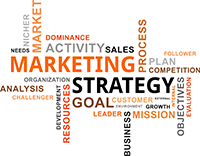3 Important Marketing Strategies Event Organizers Should Adopt

Trade show planning and marketing is an extremely strategic process. Organizers have to constantly evaluate current and emerging trends to stay on top of their game. While your team’s goals and promotional tactics will be defined by the unique environment of your industry, there are some key universal strategies that should always be a part of your marketing mix.
Differentiate your event
In your marketing content, always make it a point to highlight the key factors that distinguish your event from others in the same vertical. Expand the appeal of your brand by highlighting the unique value that your team is bringing to the industry and the professionals associated with it. This is the best way to forge an emotional connection with attendees and exhibitors. Organizations and professionals put a lot of emphasis on maximizing their ROI when considering which events to attend. Your marketing team needs to put a significant stress on the value that only your event can deliver to them.
Capture accurate demographics data
It is vitally important to know and understand your audiences’ roles and requirements. Your marketing and event management plans need to realistically address the aspirations of the participants. To facilitate, it is extremely important to capture accurate data on the demographics of attendees when they register for the event. This is even more crucial when seen in context of engaging young professionals and first time attendees. However, according to a recent CEIR report, despite efforts targeting young professionals, most exhibition organizers do not capture information on age when a professional registers to attend. Clearly, trade show management teams need to put better processes in place to record and analyze the demographics.
Engage participants the year round
Acquiring new customers is always more difficult and resource-intensive than keeping one’s current audience engaged. When a trade show or conference ends, it’s always advisable to stay in touch with the event participants and invite them to share feedback on what worked or did not work for them at your event. Address any reported issues and improve your next event by eliminating the root causes of those issues. Also, celebrate the successes of your exhibitors and attendees by showcasing these in your newsletters and blog posts. Most attendees are heavily influenced by the recommendations and experiences recounted by past participants in their space.


Add new comment